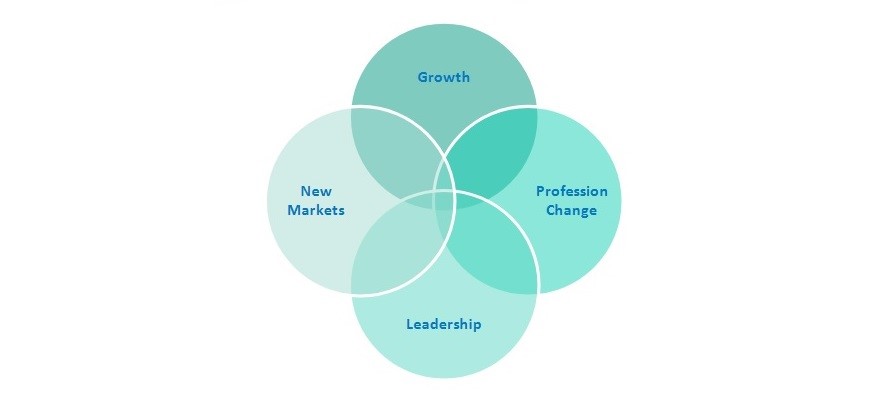10 Keys to Success for Emerging Leaders
It’s an exciting time to be an emerging leader in the accounting profession! We’re in the middle of a convergence of four opportunities that provide fantastic potential.

The profession is undergoing a transformation from automation, machine learning, and big data. Leadership is turning over at a record pace as Boomers retire and Gen X and Millennials take on new roles. Technology is allowing firms to expand into new markets they previously couldn’t access, and a growing economy means profits are healthy. Of course, for some people, change brings about feelings of unease or even fear. Those feelings are not wholly without merit. For several years now we’ve been hearing that accountants and auditors have a 94% chance of being replaced by computers within the next two decades.
By now, you know that we don’t see this as a threat, but as an opportunity, especially for those tech-savvy emerging leaders in the firm who are anxious to take an active role in the transformation. So let’s take a look at ten keys to success for emerging leaders.
Think 10X
10X thinking is centered around the idea that it’s easier to grow your business ten times over than it is to double it. To think 10X, imagine your firm is ten times its current size. Then start writing the history of that accomplishment backward. What changes did you have to make to get there? What types of work were delegated, outsourced and automated?
This kind of thinking prevents you from focusing on small tweaks and incremental changes when what you really need is radical transformation.
Initiate innovation
Many leading firms are devoting time and resources to formalizing the innovation process, but innovation is not wholly dependent on C-Suite executives. It can come from any employee that knows the firm, its clients and their specific needs. Get in the habit of thinking critically and seeing your firm through a lens of continuous improvement.
Embrace new tech
Clients are looking to their CPAs to be familiar with new technologies and recommend applications that will fit their business needs. Acting as your client’s technology advisor and leading them into adopting new technologies will improve the efficiency of their operations, provide additional revenue for the firms and help you stand out from the competition.
Develop client relationships
Client relationships are the lifeblood of any firm. The best way to build a relationship is to consistently deliver excellent service and stay in touch outside of deadlines.
Become a thought leader in your specialization
Becoming a thought leader is neither easy nor straightforward. It involves ongoing personal branding, a refined skill set, consistently expanding professional connections and introducing new ideas on a near-constant basis. You will gain a reputation as a thought leader by proving yourself to others who know a lot about your specialization.
Create cross-functional teams
Developing relationships through cross-functionality and teamwork can bring fresh perspectives, innovative ideas and help keep an organization healthy. When you build cross-functional teams, don’t focus solely on adding people from different functional areas. Job description is only one way people are diverse. Include people who differ in experience, age, gender, location and skills.
Delegate effectively
Everyone knows delegation is important, but not enough CPA firm leaders are doing it effectively. Start keeping a daily diary of how you spend your time. After a few days, look for patterns to see where you are spending time on work that can be delegated. Make an effort to pass that work to people who have the necessary skills and motivation to get the job done right, then give them the space to do it.
Manage conflict
When a diverse group of people comes together to make decisions, conflicts will naturally arise. Your first inclination may be to run from it, but well-managed conflict can promote change and create opportunities.
Overcome your fear of failure
One single value-creating idea may require hundreds of duds, and every idea won’t work out the first time. Recognize that mistakes and failure will happen in a culture of innovation. Fail fast, fail frequently, fail forward.
Continuous improvement
A tremendous opportunity to provide additional value to clients exists, but it requires moving beyond comfort zones, pushing through tension to leverage new and existing capabilities. The best firms are always looking to do better.
Our current convergence of change is creating an increased need for rapid leadership development. No amount of technical skill will turn you into a great leader, so focus on developing the capabilities you’ll need to anticipate, respond to, and continually learn from the ever-changing landscape.
What’s your next step?
About the Author
 Sandra Wiley, President of Boomer Consulting, Inc., has been lauded for her industry expertise in human resources and training. She is often called the “go-to person” for solutions to the profession’s staffing crisis, citing her wise advice on hiring – and keeping – employees for the rest of their careers.
Sandra Wiley, President of Boomer Consulting, Inc., has been lauded for her industry expertise in human resources and training. She is often called the “go-to person” for solutions to the profession’s staffing crisis, citing her wise advice on hiring – and keeping – employees for the rest of their careers.
